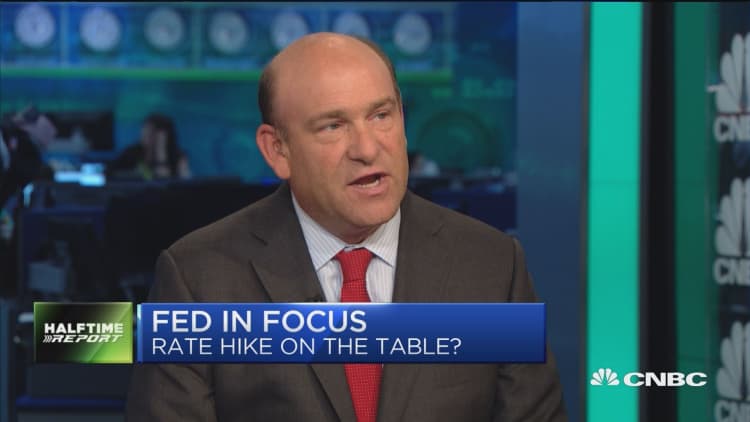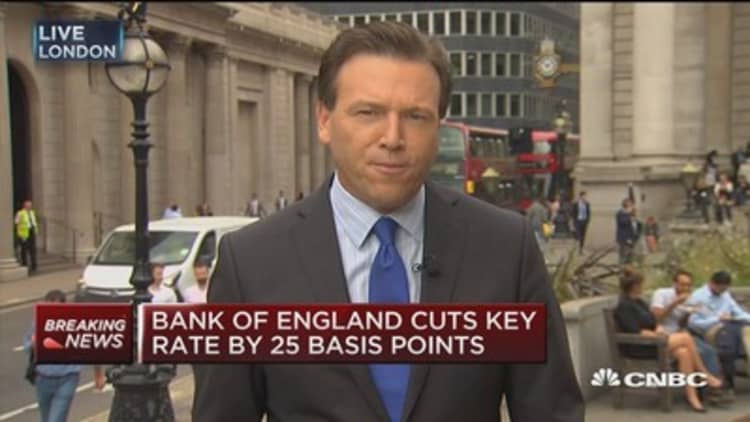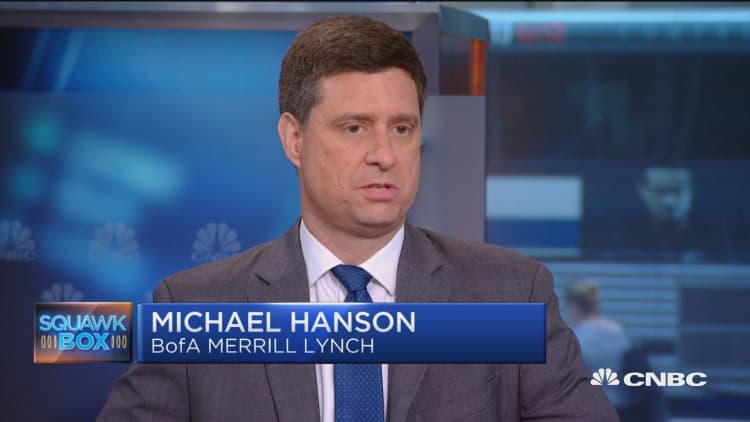


U.S. corporations are on track to raise a trillion dollars in new debt this year, and the Bank of England just added more fuel to the bond fire.
The BOE cut rates by a quarter point, as expected. But as part of its policy easing, it also announced an expansion of quantitative easing, and like the European Central Bank, it included corporate bonds in its plans.
That brings a big new buyer to an already hot corporate debt market, and its program and the programs of other central banks put downward pressure on global interest rates, even as the Federal Reserve hopes to tighten sometime later this year.
U.S. corporate debt has already been a magnet for investors seeking better yield than they can get overseas, and the Bank of England just helped accelerate that trend with its rate cut and easy policy. Negative yields in Europe and Japan have created a bonanza for U.S. fixed income.
"I think the bigger thing is corporations get an absolute free pass to issue more debt and do whatever they want, and it's all financial engineering. Very little is going to cap ex, and I can't blame them," said Andrew Brenner, of broker-dealer National Alliance Securities. "You have historically low rates and you can basically issue debt for nothing. You can issue dividends. You can buy back stock. There's insatiable demand right now. But when it stops, it's going to hit a stone wall. That's not today."
U.S. CFOs have been busy borrowing this week - even before the Bank of England move. August is usually a quiet month, but already $48.25 billion in investment grade debt has been issued, making it the fifth biggest week of the year.
The Bank of England action had been expected as a response to Brexit and its potential impact on the U.K. economy as Britain moves to separate itself from the European Union.
But the bank surprised the market by boosting its government bond-buying program by 60 billion pounds and adding the purchase of 10 billion pounds in U.K. corporate bonds.
"Ten billion (pounds) is tiny. It's a modest amount but it leads to obviously a rally in the entire space," said Peter Boockvar, chief market strategist The Lindsey Group.
"It'll trigger probably more issuance but by continuing to compress yields, you're making this appear less and less attractive to buy. Very unattractive."
The corporate bond-buying program is expected to be limited only to the debt of U.K. firms that make a material contribution to the British economy.
"Buying it directly or buying it indirectly has the same affect. If you have a U.K. pension manager and as corporate bonds there get ridiculously expensive, he's going to sell those and buy U.S. corporates — the Microsofts, the Apples," Brenner said. "Corporate spreads are going to stay tight. That's what we've seen from the ECB."
So far this year, investment grade corporations have issued more than $850 billion in debt in the U.S. market and are on track to hit at least $1 trillion by year end, according to Informa Global Markets. Last year, they issued $1.25 trillion, topping the record $1.1 trillion in 2014.
This week, Microsoft issued $19.75 billion of debt, in the fifth biggest bond deal ever.
Deals on Thursday included Caterpillar Financial, Dominion Resources, Paccar and Huntington Financial, according to Informa.


